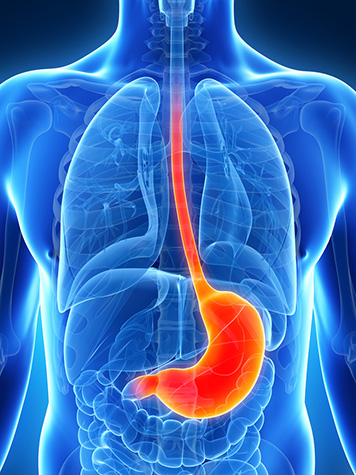Gastroscopy
What is a gastroscopy?
 A Gastroscopy is a detailed camera examination of the oesophagus (gullet), stomach and duodenum.
A Gastroscopy is a detailed camera examination of the oesophagus (gullet), stomach and duodenum.
Why is a gastroscopy performed?
The procedure is performed to evaluate symptoms such as abdominal pain, nausea, vomiting, difficulty swallowing or heartburn. It is the most accurate method of detecting inflammation, ulcers or tumours.
What preparation is required?
The stomach should be clear of food and fluid to allow a thorough examination. You should have nothing to eat or drink for approximately 6 hours before the examination.
Most medications can be continued. Aspirin, blood thinners (warfarin) and insulin should be discussed with your surgeon prior to the examination.
You may wish to be sedated during the procedure. If so, you will need to arrange for someone to escort you home after the procedure. Sedatives will affect your judgment and reflexes for the rest of the day. You should not drive, operate machinery or sign legal documents until the next day.
What can be expected during the gastroscopy?
You will be seen on the ward prior to the procedure to discuss any concerns and to sign a consent form. Once in the procedure room, you will have your throat sprayed with a local anesthetic before the test begins. This will mean you cannot feel the tube at the back of the throat. Any sedation will also be given at this point. You will be asked to lie on your side as the endoscope is gently passed through your mouth and into your oesophagus, stomach and duodenum. The procedure usually lasts between 10-15 minutes. The endoscope does not interfere with your breathing.
What happens after the gastroscopy?
You will be monitored in the endoscopy area for 1-2 hours until the effects of the sedatives have worn off. Your throat may be a little sore for a day or two. You may feel bloated immediately after the procedure because of the air that is introduced into your stomach during the examination. You will be able to resume your diet and take your routine medication after you leave the endoscopy area. You will be seen after the procedure to explain the findings. Any biopsy samples taken will take several days to return.
What complications can occur?
Complications are rare. They include bleeding from the site of a biopsy or a perforation if a dilation procedure is performed.




